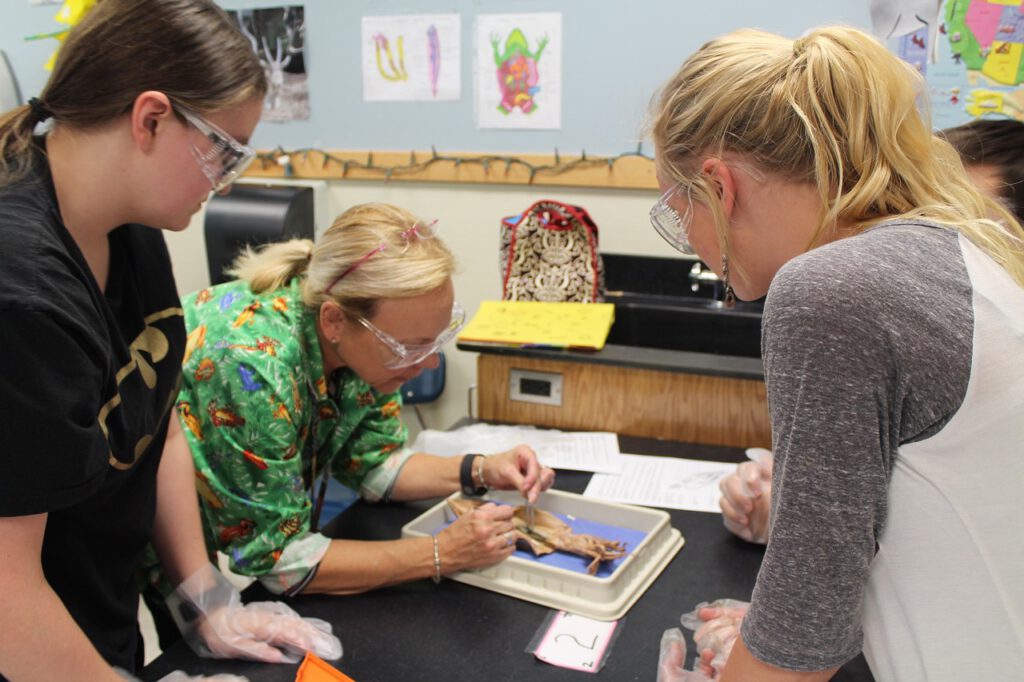Major £179 million Government investment to support next generation of STEM talent

#BSW20 – @AlokSharma_RDG and @GavinWilliamson ANNOUNCE MULTI-MILLION GOVERNMENT INVESTMENT IN THE FUTURE OF UK SCIENCE AND #STEM
The next generation of world-leading scientists across the UK will benefit from a multi-million-pound government package of investment, the Government announced today (Friday 6 March).
Marking the start of British Science Week, Business Secretary Alok Sharma and Education Secretary Gavin Williamson announced funding to support up to 11,000 students through 41 Doctoral Training Partnerships, as well as encourage more young people, particularly girls, to study STEM subjects at school and university, and pursue a STEM-related career.
The investment includes:
- £179 million for PhDs, formally known as Doctoral Training Partnerships, at over 40 UK universities in physical sciences, maths and engineering to develop the skills for ground-breaking research and high-tech industries like cyber security and chemical manufacturing. Part of the investment will go into pilots looking at how best to attract and support those from non-academic backgrounds to undertake this type of training.
- £8.9million to continue funding science education programmes including Science Learning Partnerships and Stimulating Physics Networks, which aim to improve science teaching and increase the take up of science at GCSE level and A level and ultimately encourage young people to pursue a STEM-related career.
Business Secretary Alok Sharma said:
“From Ada Lovelace to Stephen Hawking, our scientists and the discoveries they have made have pushed the boundaries, improving our healthcare and transforming the way we live, work and travel.
“Today’s funding will support the talented people we have in this country to study these vital subjects, develop technologies for the future and support the UK’s status as a science superpower.”
Education Secretary Gavin Williamson said:
“Making sure that the next generation has the scientific skills to meet the world’s needs – from developing green technologies to curing illnesses – couldn’t be more important.
“That’s why we continue to invest in science programmes in our schools and ensure that anyone, regardless of their background, can participate.
“Girls now make up just over half of A level entries for the three core science subjects but there is more we can do so we will fund research to better understand how we can improve girls’ physics A level participation.”
The Government also announced the first Stephen Hawking Fellows, who will continue Professor Stephen Hawking’s legacy by furthering understanding of the Universe and tackling major scientific questions like the nature of dark matter and how planets are formed.
They will receive a portion of the £15 million funding already announced by the Government, in partnership with the Hawking family, in 2018. The Fellowships will support ground-breaking research across physics, maths and computer sciences that challenges current assumptions, advances scientific knowledge and inspires the public through their discoveries.
Stephen Hawking’s children, Lucy, Robert and Tim Hawking, said:
“We are proud to be associated with this initiative, which builds on the legacy of our father by supporting research into these areas of science.
“One of his greatest achievements was opening up even the most complex scientific breakthroughs to the wider world and we hope that these Fellows are able to continue that important mission by inspiring people from all walks of life in the wonders of science.”
UK Research and Innovation Chief Executive, Professor Sir Mark Walport, said:
“Professor Stephen Hawking pushed forward the boundaries of human knowledge, both through his research which transformed our understanding of the universe and his rare talent for communication.
“The Fellows announced today will continue his legacy, pushing the boundaries of knowledge and inspiring the public with the value and beauty of science.
“The EPSRC Doctoral Training Partnerships will play a key role in equipping a diverse range of researchers and innovators with the skills they need to generate impact across the UK.”
Previous Government investments in physical sciences, maths and engineering doctoral training have resulted in pioneering advances – they include developing new methods to predict the location of road collision hotspots (University of Newcastle) or hydrogel-based wound dressing that helps them to heal and control infections (University of Bath with PHE).
After completing PhDs, nearly 40% of engineering and physical sciences doctoral students go on to be employed in business or public services, with 39% of those working in academia and 22% using this knowledge and skill in training or working in other sectors.
We have also seen a 31% in the number of STEM A levels entries taken by women in England between 2010 and 2019.
The government will continue to fund a number of programmes in science education for a further year, including:
- the network of 41 Science Learning Partnerships, run by STEM Learning, which aims to improve the quality of science teaching and increase the take up of GCSE science. The Department for Education has provided £17.7m of funding from 2016 to 2020;
- Project Enthuse, which provides bursaries for science teachers and technicians to attend high-quality professional development. The department and the Wellcome Trust have jointly funded this programme, with the Department for Education providing a total of £13.1m from 2013 to 2020;
- the Isaac Physics programme, run by the University of Cambridge, which offers support and activities in physics problem solving to teachers and students studying GCSE and A level physics. The Department for Education has provided £7.3m grant funding from 2013 to 2020;
- the Stimulating Physics Networks, run by the Institute of Physics, to improve the take up of A level physics, particularly by girls. The Department for Education has provided £8.6m of funding for the SPN from 2016 to 2020. This includes funding for the Institute of Physics to deliver the Improving Gender Balance research trial, which aims to encourage greater uptake of physics among girls.
Today’s funding announcements follow the Government investing up to £300 million to fund experimental and imaginative mathematical sciences research over the next five years. The new funding forms part of the Government’s commitment to significantly boost research and development funding reaching 2.4% of GDP by 2027 and levelling up every part of the UK.











Responses